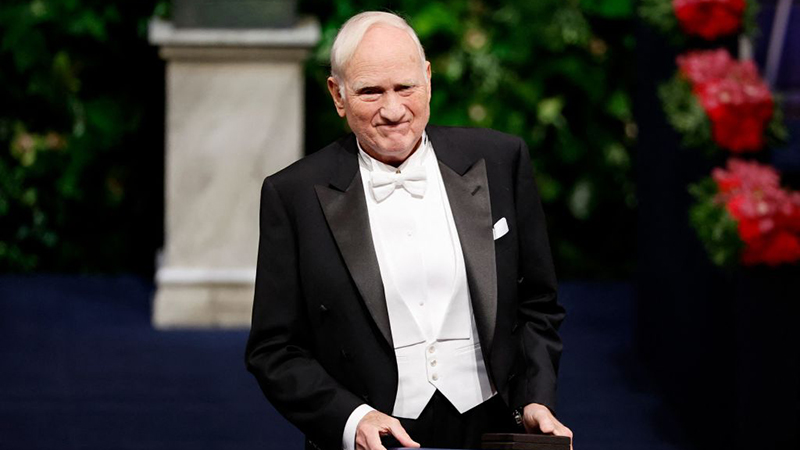Trending
Cancellations Start for John Clauser After Nobel Physics Laureate Speaks Out About “Corruption” of Climate Science

Earlier this month, the 2022 Nobel Physics Laureate Dr. John Clauser slammed the ‘climate emergency’ narrative as a “dangerous corruption of science that threatens the world’s economy and the well-being of billions of people”. Inevitably, the punishments have begun. A talk that Dr. Clauser was due to give to the International Monetary Fund on climate models has been abruptly cancelled, and the page announcing the event removed from the IMF site.
Dr. Clauser was due to speak to the IMF’s Independent Evaluation Office this Thursday under the title: “Let’s talk – How much can we trust IPCC climate predictions?” It would appear that “not a lot” isn’t the politically correct answer. Clauser is a longstanding critic of climate models and criticised the award of the Physics Nobel in 2021 for work on them. He is not alone, since many feel that climate models are primarily based on mathematics, and a history of failed opinionated climate predictions leave them undeserving of recognition at the highest level of pure science. Not that this opinion is shared by the green activist National Geographic magazine, which ran an article: “How climate models got so accurate they won a Nobel.”
Last week, Clauser observed that misguided climate science has “metastasised into massive shock-journalistic pseudoscience”. This pseudoscience, he continued, has become a scapegoat for a wide variety of other related ills. It has been promoted and extended by similarly misguided business marketing agents, politicians, journalists, government agencies and environmentalists. “In my opinion, there is no real climate crisis,” he added.
Clauser is the latest Nobel physics laureate to dismiss the notion of a climate crisis. Professor Ivar Giaever, a fellow laureate, is the lead signatory of the World Climate Declaration that states there is no climate emergency. It further argues that climate models are “not remotely plausible as global policy tools”. The 1998 winner Professor Robert Laughlin has expressed the view that the climate is “beyond our power to control” and humanity cannot and should not do anything to respond to climate change.
The Australian climate journalist Jo Nova was in fine form reporting on Clauser’s recent comments. “The thing about sceptical Nobel Prize winners is that they make the name-calling ‘climate denier’ programme look as stupid as it can get,” she observed. She noted the lack of any mainstream media interest in Clauser’s recent comments, asking: “How much damage would it do to the cause if the audience finds out that one of the highest ranking scientists in the world disagrees with the mantra?” A question of course with an obvious answer. Quite a lot.
The same team that tells us that we must ‘listen to the experts’ won’t listen to any experts they don’t like. They rave about ‘UN Experts’ that hide the decline, but run a mile to avoid the giants of science. They’ll ask high-school dropouts about climate change on prime-time TV before they interview Nobel Prize winners. It’s a lie by omission. It’s active deception. And the whole climate movement is built on it.
The IMF is heavily involved in international money flows and one can only hope it shows a greater willingness to ‘evaluate’ this subject matter than it does the predictions of climate models. Dr. Clauser secured his Nobel Prize for groundbreaking work in the field of quantum mechanics – the study of matter and light at a sub-atomic and atomic level. In 2010 he was awarded the Wolf Prize in Physics, considered the second most prestigious physics award after the Nobel. In addition to this work, he has also made suggestions as to how to improve current climate models.
Attempts to model the chaotic and non-linear atmosphere suffer on many fronts. They fail to predict future temperatures with mostly laughably degrees of inaccuracy, and in the process do little more than guess the effect of natural forces such as volcanoes and clouds. In Clauser’s view, climate models greatly underestimate the effect of the clouds that cover half the Earth and provide a powerful – and dominant – thermostatic control of global temperatures. More recently, Clauser also told the Korea Quantum Conference that he didn’t believe there was a climate crisis, noting: “Key processes are exaggerated and misunderstood by approximately 200 times.”
The cynical might add that this degree of exaggerated inaccuracy might be fine in the land of economics, but more robust standards should be encouraged in the world of science.
Read the full article here


















